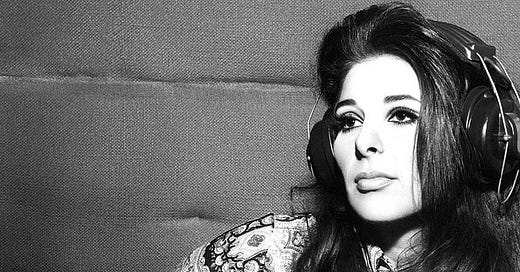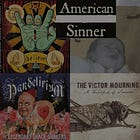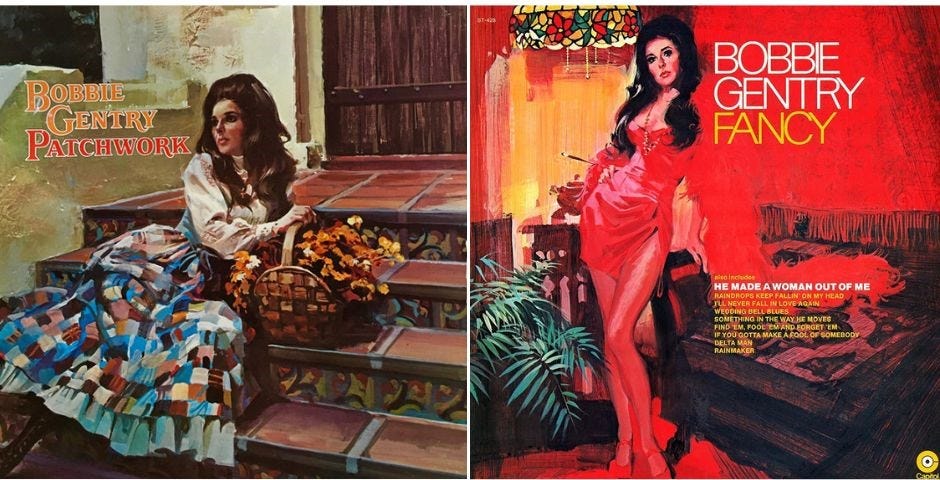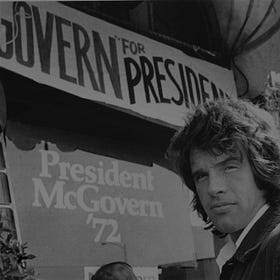The Queen Of Southern Gothic : Bobbie Gentry
“When Bobbie Gentry sings … I feel like I’m with her in her private world of Southern intrigue and longing, full of sadness, corruption, tragedy and romance”- Adam Weiner, Low Cut Connie
When Bobbie Gentry`s ‘‘Ode to Billie Joe’’ came out in 1967, the song pushed The Beatles ‘‘All You Need is Love’’ off the top of the charts and stayed 4 weeks at number one position on the Billboard Hot 100. The song earned her 3 Grammy`s (Best Vocal Performance, Best Contemporary Female Solo Vocal Performance and Best New Artist) and 10 nominations that year. She was the first country artist to achieve this and was the first female musicians to write, perform & produce her own music in an era where female musicians were interpreters (Murtha, 2015,p.9, 90). She became the first woman to host her own variety show on the BBC and she was a DJ on a popular radio program on Armed Forces Radio that aired all over the world. Also, she focused on business and established two publishing companies - Super Darlin’ Productions (ASCAP) and Footboat (BMI), established under her parent production company Gentry Ltd.
For the past few weeks I`ve been listening, researching and writing on this blog about 90s Gothic Country music. However, in this post I want to highlight the significance of Bobbie Gentry, the first woman to be inducted into the Mississippi Hall of Fame in 1976 and her songs ‘‘Ode to Billie Joe’’ and ‘‘Fancy’’.
‘‘Ode to Billie Joe’’ (1967)
Originally 7 minutes long but shortened down to 4 minutes after Capitol Records request, ‘‘Ode to Billie Joe’’ tells the haunting story of Billie Joe McAllister who “jumped off the Tallahatchie bridge”. Whilst it is a mystery of what was thrown into the bridge, the protagonists mother in the song states that the nice young preacher, Brother Taylor ‘‘saw a girl that looked a lot like you up on Choctaw Ridge; And she and Billie Joe was throwin' somethin' off the Tallahatchie Bridge’’.
There is also speculation that the line ‘‘Mama said to me, "Child, what's happened to your appetite?’’ indicates that the protagonist is in a interracial relationship with Billie Joe and that an aborted foetus was thrown from the bridge, leading to Billie Joe`s death. Gentry explains that what was thrown off the bridge is not important, rather the song is a ‘‘study in unconscious cruelty’’ :
‘‘Everybody has a different guess about what was thrown off the bridge—flowers, a ring, even a baby. Anyone who hears the song can think what they want, but the real message of the song, if there must be a message, revolves around the nonchalant way the family talks about the suicide. They sit there eating their peas and apple pie and talking, without even realizing that Billie Joe’s girlfriend is sitting at the table, a member of the family.” (Hutchinson,2013)
Originally she wanted to just sell the song to Capitol Records and not sing it, however performing the song turned in her favour. The song was so inspirational that it inspired the film Ode to Billy Joe in 1976 by Max Baer Jr.
Michelle Lindsay notes that Dolly Parton was inspired by the song also. Particularly ‘‘suicide is a recurring theme in Dolly’s work – no doubt inspired by Ode to Billie Joe. The most obvious parallel is ‘The Bridge’ since it uses the same location for its dramatic unravelling’’(Lindsey, 2018). Country artists Sheryl Crow, Shelby Lynne and Lucinda Williams also share admiration for Gentry. Dave Vanian from the punk band The Damned mentioned Gentry as one of his favourite artists.
Jill Sobule and Rosanne Cash often cite Gentry as a major influence and Adam Weiner of Low Cut Connie said for a Rolling Stone interview that ‘‘discovering Gentry opened his mind to music’s ability to transport listeners to another place’’(Murtha, 2017). For him: “when Bobbie Gentry sings … I feel like I’m with her in her private world of Southern intrigue and longing, full of sadness, corruption, tragedy and romance”(Murtha, 2017). Notably, Lucinda Williams wrote an article dedicated to ‘‘Ode to Billie Joe’’ for Independent in 1993. She explains that:
‘‘Bobbie Gentry doesn't really fit into any comfortable history of country and western…This one is weird because it doesn't really have a middle eight or a verse-chorus structure; it's all strung along together. The melody is very bluesy, and the words fit it beautifully.
'Brother Taylor came by today / Said he'd be pleased to have dinner on Sunday, O by the way . . . Every word seems to have several notes hanging on it, and many of them in a minor key, so it doesn't sound at all bright or pretty, and yet the melody has this great sense of movement to it. At the same time it has this great rhythm, it's quite funky.
What else is remarkable is that Bobbie Gentry has quite a low voice and sings with this gravelly edge, and yet the song has this musicality to it.’’ (Williams, 1993)
‘‘Ode To Billie Joe’’ has been covered by Mercury Rev and Lucinda Williams, Nancy Wilson, Diana Ross & The Supremes, Sinéad O`Connor, Tammy Wynette and many more influential musicians. American jazz singer Ella Fitzgerald also known as the "First Lady of Song" & "Queen of Jazz" covered the song on A Man and His Music + Ella + Jobim TV special in 1967. Both Frank Sinatra and Ella Fitzgerald admired the song.
Bob Dylan wrote an answer to the song called "Clothes Line Saga" in 1967, but it was released on the album The Basement Tapes (1975). Check out these different covers of ‘‘Ode To Billie Joe’’ and leave a comment of your favourite !
‘‘Fancy’’ (1969)
‘‘Fancy’’ was her second and final single to reach the top of the Billboard Hot 100. American Songwriter named it ‘‘one of the greatest songs ever written’’. Dubbed "the Queen of Country" Reba McEntire covered the song in 1990, surpassing the original on the country music charts.
*BTW: It is believed that the painting of Gentry on the album Fancy (1970) was done by Gentry herself. Likewise the painting on her album Patchwork (1971).
Just like the first single which discusses dark subjects, ‘‘Fancy’’ tells the story of the protagonist Fancy who`s mother encourages prostitution to overcome childhood poverty. The lyrics reveal that:
‘‘Momma spent every last penny we had, To buy me a dancin' dress,
Momma washed and combed and curled my hair;
And she painted my eyes and lips,
And starin' back from the lookin' glass,
Was a woman where a half-grown kid had stood,
Here's your one chance, Fancy, don't let me down,
Your Momma's gonna help you move uptown’’.
This song was shocking at the time, however Gentry viewed this song as a feminist statement, explaining that :
‘‘‘Fancy’ is my strongest statement for women’s lib, if you really listen to it. I agree wholeheartedly with that movement and all the serious issues that they stand for—equality, equal pay, day care centers, and abortion rights.” (Uitti, 2022)
Holly Gleason finds that ‘‘Fancy’’ and ‘‘Ode to Billie Joe’’ are two polar opposites when it comes to the mother-daughter dynamic:
‘‘Fancy’s mother has nothing to give her but empowerment, and as a result, Fancy changes her circumstances and climbs out of poverty. On the other hand, the gossipy, obfuscating mother in “Ode to Billy Joe” descends into an almost catatonic state at the song’s end, becoming dependent on her daughter, whose life remains exactly the same. So “Fancy” isn’t just a feminist anthem—it’s also a lesson in what’s important to impart to your children. For those of us who never narrowed the chasm between our mothers and ourselves that developed when we clicked into our teens, it’s enlightening.’’ (Gleason, 2017,p.46)
Whilst Bobbie Gentry influenced many, was not afraid to discuss controversial subjects and changed the musical landscape, her last performance was in 1981. She performed on “The Tonight Show with Johnny Carson” on Christmas night in 1978 and on Bob Hope’s “All-star Salute to Mother’s Day” in 1981. Rick Hall who produced ‘‘Fancy’’ explains that : “She had a lot of bad memories of the music business. She didn’t like the way things worked with record companies and all that. Didn’t like what she was getting paid’’(Ledger, 2016). So she quit music.
Just like music, reading daily exercises the brain, improves sleep and reduces stress, so why not read some more?! Check this out:
West Coast Hardcore Punk & Grunge: Protest Against Police, Religion and Reagan
There's always room for jello – slogan for Jello Biafra's campaign (real name Eric Reed Boucher) (Bickel, 2015) As previously discussed in Every Single Sound Speaks In The Plural: West Coast hardcore punk and grunge , the hardcore punk movement was a rebellion movement against the political social fabric that it existed in.
Celebrities As Political Coordinators
The synergy between celebrities and politicians has only increased over the years. West and Orman conclude that actor Warren Beatty`s efforts to organise celebrities to support George McGovern for his 1972 presidential election campaign ‘’helped to institutionalise the formal role of celebrity coordinator in election campaigns’’ (West and Orman, 2003, p…










Excellent article on Bobbie Gentry. I confess I hadn't considered that Billie Joe might be black. That gives the whole song an even deeper level -- thank you!
You're no doubt familiar with the excellent podcast Cocaine & Rhinestones, which did a full episode on Bobbie Gentry which is very much worth the listen --
https://cocaineandrhinestones.com/bobbie-gentry-exit-stage-left
Also I don't think you mentioned her Delta Sweete album, which is one of the most uncategorizable albums I've ever heard -- swampy funk? country psychedelia? grungy soul? I dunno, but it's fantastic and IMO by far the best thing she ever did. It deserves SO much more recognition than it gets.
Also, hi!